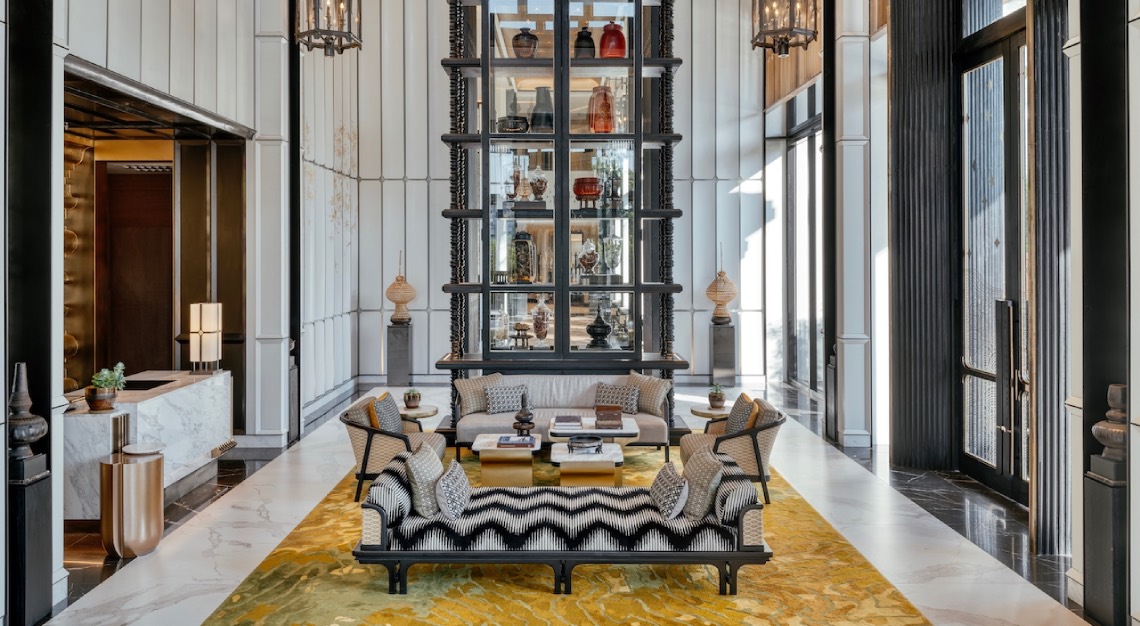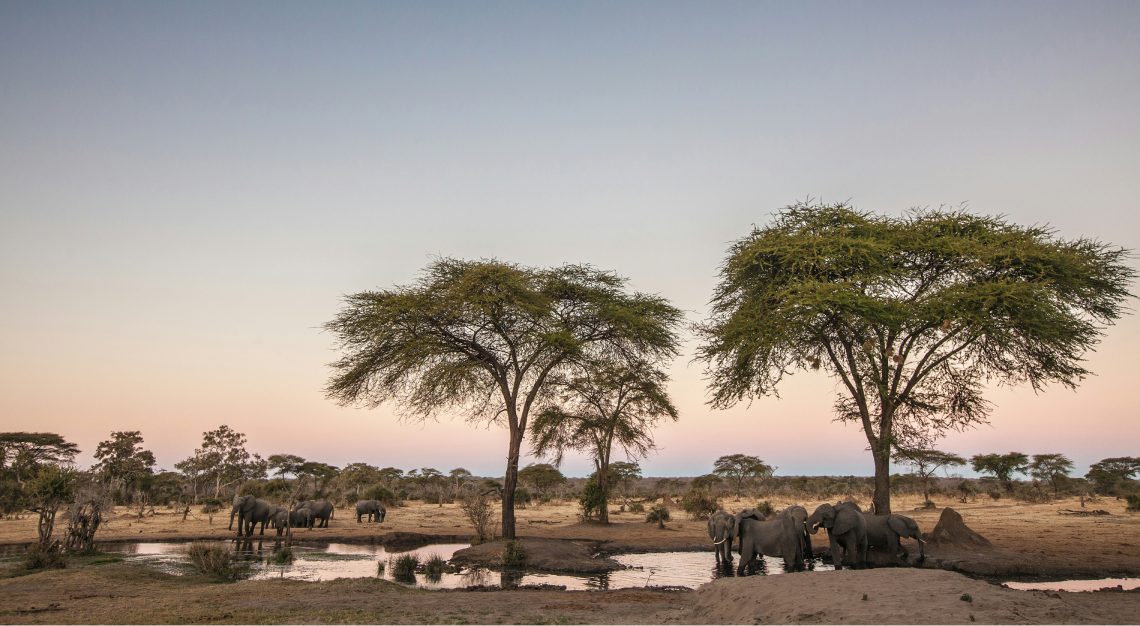Raffles Maldives Meradhoo paves the way of how to be a responsible resort in the Maldives through its myriad sustainability initiatives for a lower ecological and carbon footprint
Editor’s note: See other Escape Plan stories here.
Stunning powdery white sand beaches, crystal clear azure oceans, striking atoll colours and home to perhaps the world’s best underwater corals and marine life. All that, yet I’m probably still grossly underselling the natural beauty of the Maldives.
Despite the hard fact that climate change is slowly but surely threatening the existence of the Maldives (the archipelagic state is expected to be underwater in another 30 years unfortunately), there is one resort honouring its unwavering commitment to safeguarding the pristine beauty of its slice of paradise. Promoting best practices in sustainability with an eco-conscious approach to sustain the integrity of its island and protect the environment in a manner as ethically responsible as possible, Raffles Maldives Meradhoo does it all, from community engagement to environmental conservation and everything in between to lessen the environmental impact, giving conscientious guests several opportunities to lower their carbon footprint while visiting too.
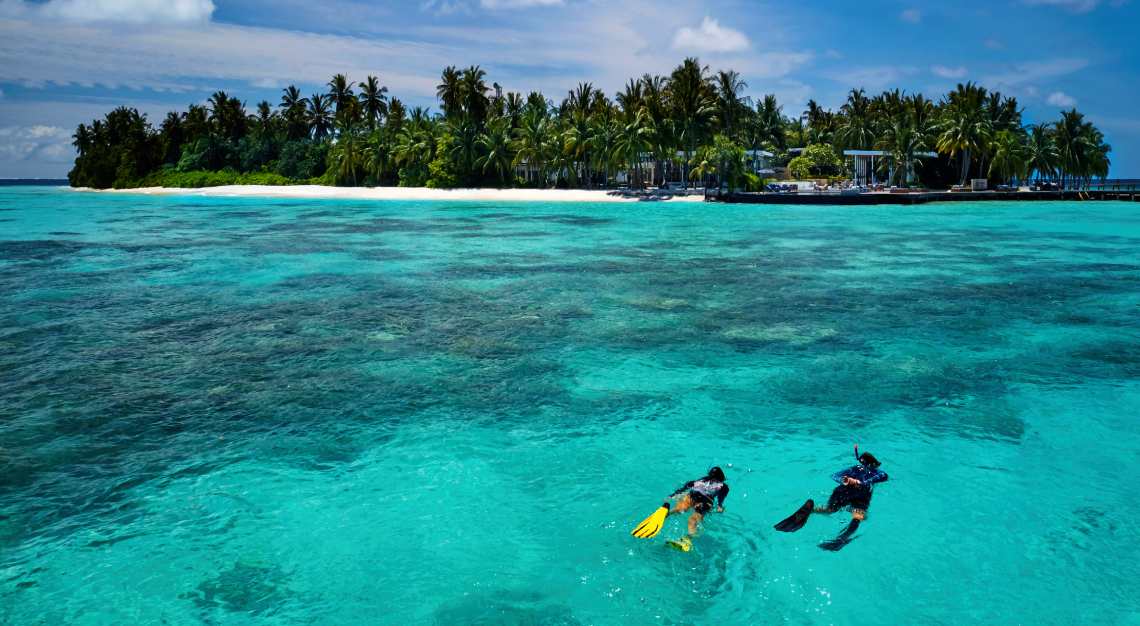
For instance, no trip to the Maldives is complete without snorkelling or deep diving. But not all snorkelling footprints lie the same. Located on the southernmost tip of the island state on the remote northern Gaafu Alifu atoll, one of Raffles Maldives Meradhoo’s most important initiatives is employing a dedicated Resident Marine Biologist onsite for their Coral Regeneration Programme, in an effort to preserve their unique marine life and precious house reef (the resort is home to 25 resident hawksbill turtles, resident reef sharks and a spectacular array of tropical fish). Guests can benefit from the Marine Biologist’s deep knowledge and understanding of the Maldives coral reef and learn about the resort’s conservation efforts through house reef snorkelling experiences with the resort’s Marine Butlers (formally trained by the Marine Biologist). The resident Biologist also runs the resort’s Coral Restoration Project, focusing on enhancing the health, abundance, and biodiversity of the coral reef, implementing reef restoration programs by using existing reef fragments to create artificial reefs that serve as spawning hotspots for future coral. Finally, not many luxury Maldivian resorts can boast of having a resident Biologist responsible for educating all staff on how to preserve and protect marine life.
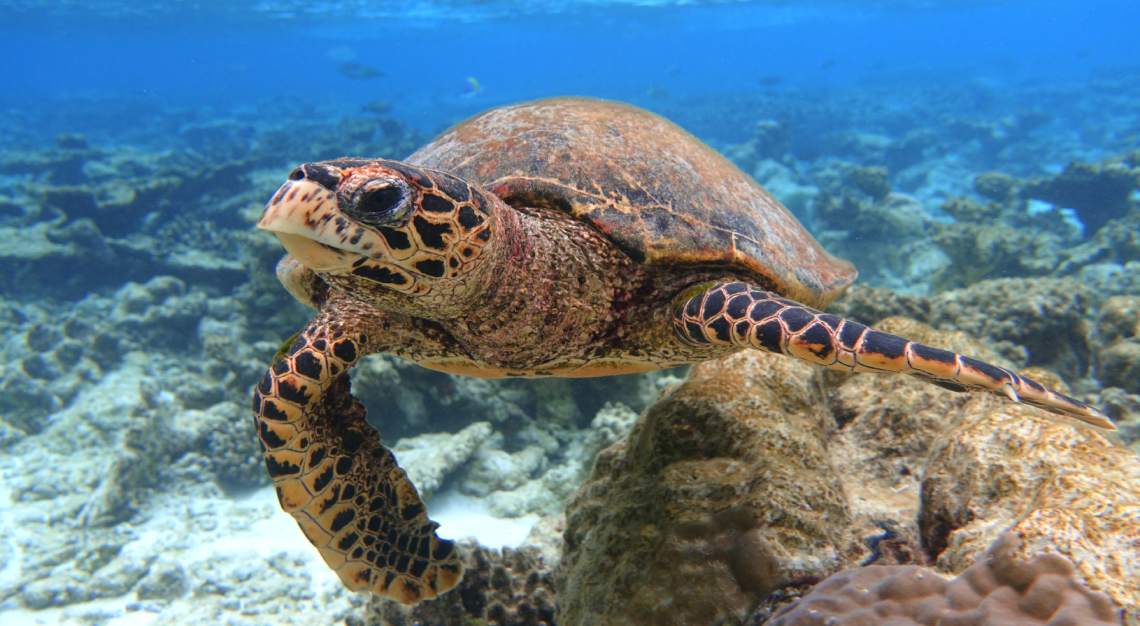
Raffles Maldives Meradhoo’s ban on single-use plastics in guest villas and around the sprawling resort (over both its Main Island and the Overwater Island) includes replacing all plastic amenities with ceramic containers, and using (locally handmade) non-woven, biodegradable packaging for all amenities, and using only paper and bamboo straws, further reducing the plastic waste brought into the resort (and it’s corresponding carbon footprint).
Villas and walkways are equipped with LED lights to save energy. To reduce paper waste, iPads are used to share information and manage data, and solar panels are employed for water heating and electricity throughout the resort to reduce its reliance on fossil fuels and conventional energy sources. Furthermore, despite being largely dependent on international suppliers for top-quality produce, sustainable purchasing SOPs are in place to lessen the environmental effects of the procurement process with their suppliers.
In partnership with EcoPure (UK), Raffles Maldives Meradhoo has also installed an in-house water bottling plant and a state-of-the-art reverse osmosis plant to produce fresh, filtered drinking water from seawater. Using reverse osmosis technology, seawater is treated on-site, before passing through complex stages of filtration to make it suitable for drinking. Salt and other impurities are separated from the water, as important minerals are added. The final product is then passed through a cooler for still water (CO2 is added for sparkling water), and the finished product is stored and served in recyclable, refillable glass bottles. Guests not only enjoy the highest quality of water, but just as importantly, the process leaves no discernible carbon footprint behind. Through the installation and diligent operation of this sophisticated bottling facility, Raffles Maldives Meradhoo has impressively eliminated the need for an estimated 100,000 plastic bottles annually.
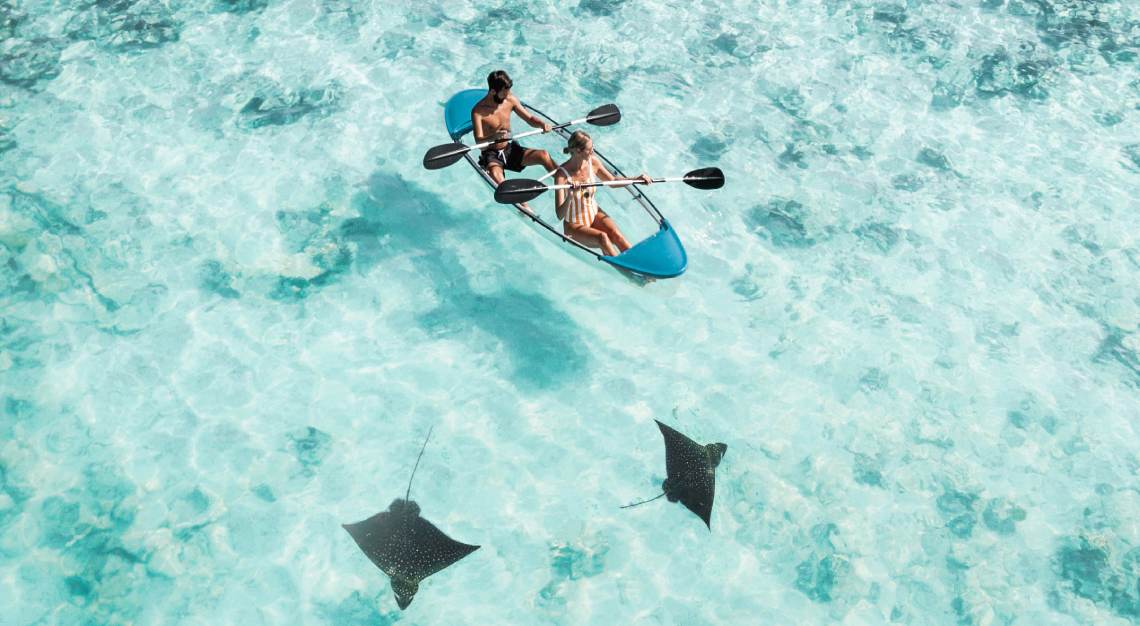
Some of the resort’s other formidable sustainable efforts include replacing plastic room cards with biodegradable wooden cards, which are not only made from sustainably managed forests, but also translate to faster degradation in both littering and landfill conditions.
Continuing on its quest for a better and greener tomorrow, Raffles Maldives Meradhoo is one of the few resorts in the Maldives that uses organic waste to produce biogas, a renewable energy source. Using a special biogas plant, organic food waste undergoes anaerobic decomposition to be transformed into clean cooking gas.
The resort is also dedicated to the simple practice of responsible composting and responsible recycling. All used paper and cardboard waste are incinerated, along with fallen leaves and branches, to produce garden compost. Team members are trained on programmes that embrace environmental commitments and the resort’s eco-friendly vision, ensuring every waste material finds its rightful place in the journey towards sustainability.
And it’s not just in front of the house where the sustainability ethos takes priority. Not surprisingly, Raffles Maldives Meradhoo also strongly promotes its own organic gardening on the island, yielding top quality, fresh produce free of synthetic fertilisers and pesticides. Internally, each of the resort’s departments is assigned a piece of land that is gardened or cultivated to promote team building, enhance the beauty of the staff living areas, and also make for a healthy best garden initiative competition. This gesture is such a testament to the resort’s commitment to both environmental issues and employee welfare, the initiative is actually part of the resort’s KPIs too.




